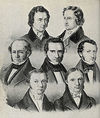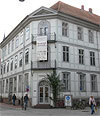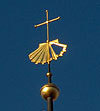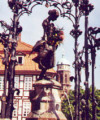G�ttingen's Seven
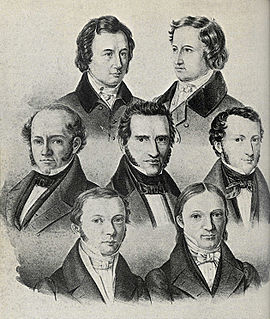
In 1833, a charter, the 'state basic law' came into force in the kingdom Hanover. Participating in that was the expert in constitutional law and historian Christoph Friedrich Dahlmann, who sat as representative of the Göttingen university in the Second Chamber of the noble court. Thus, Hanover belonged to the group of liberal constitutional states of the German Confederation. With the death of King William IV of the United Kindom and Hanover on the 20th of June 1837, the 123-year old personal union between the two states ended. In Hanover, Willam's brother Ernst August I took over the government. Immediately after taking office, he declared on the 5th of July 1837, that he doesn't feel bound by the state basic law, as it was voted on without his agreement and he does want to bring change about. He repealed the relatively liberal constitution on the 1st of November, which came into force only four years earlier.
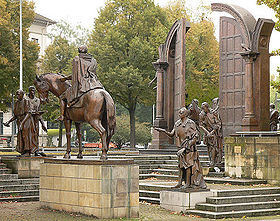
Dahlmann, then tried again to encourage the whole university to oppose this coup détat and drafted a protestation. Dahlmann tried first, to motivate the university's senate to fight against that. The attempt failed because of the wish by his 41 colleagues, to avoid any public conflict during the festivities of the none-hundred jubilee of Georgia Augusta. Only six other professors were prepared to sign the protestation: the solicitor Wilhelm Eduard Albrecht, the theologian and orientalist Georg Heinrich August Ewald, the historian Georg Gottfried Gervinus, the Germanists Jacob and Wilhelm Grimm and the physicists Wilhelm Weber.
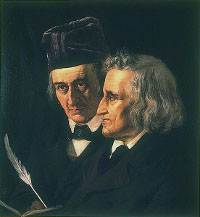
The writ developed its actual explosive force with the publication, probably by Gervinus. Hundreds of students produced in a few days, thousands of copies and send them to the whole of Germany. Now, the king found himself compelled to take drastic measures: On the 4th of December, the seven professors were examined in front of the university court and defrocked on the 14th of December already. Dahlmann, Gervinus and Jacob Grimm had to leave Göttingen within three days, on account of the writ distribution outside of the kingdom, thus they were expelled. They were then welcomed by the Prussian king Frederick William IV in 1840. The other professors, according to instructions, were allowed to stay in Göttingen after their discharge.
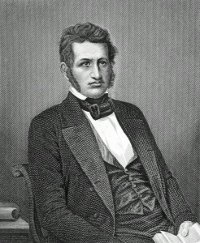
At the same time, a great solidarity effect was shown by the population, who paid the exiled their salary from donated money. Here, at the latest it became clear, that liberalism as mass movement could not longer be suppressed by resolutions and regulations. Jacob Grimm held a place of honour in the Frankfurt National Assembly in 1848. Albrecht, Dahlmann and Gervinus were co-authors of legislative initiatives. The reputation of the Göttingen university suffered for a long time, due to the sacking of these outstanding teachers.

 Deutsch
Deutsch Nederlands
Nederlands Dansk
Dansk Österreichisch
Österreichisch Po Polsku
Po Polsku Italiano
Italiano Francaise
Francaise Portugiesisch
Portugiesisch










